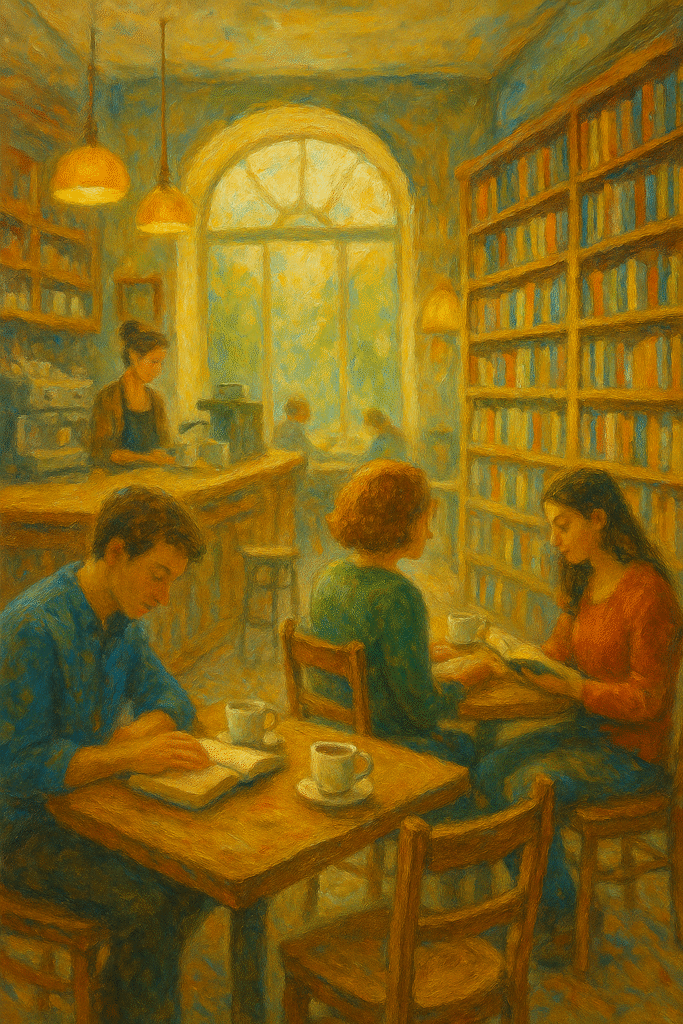In today’s fast-paced world, third spaces have become vital hubs for social interaction and community building. Unlike our home (first space) and work (second space), third spaces such as cafes and bookstores serve as essential environments for fostering belonging and connection. These spaces play an ever-increasing role in defining our social lives, and their impact on community dynamics cannot be overstated.
What Are Third Spaces?
Third spaces refer to places where people can gather and interact, forming a sense of belonging beyond the confines of home and work. According to the Government Research Database, these settings can enhance social engagement and elevate community spirit. Here are some characteristics of third spaces:
* Open to all
* Flexible and informal
* Encourage connection and conversation
* Offer a sense of comfort and safety
By understanding the role of these spaces, we can better appreciate their significance in urban culture.
The Role of Cafes in Creating Community
Cafes have long been considered third spaces, serving as vital community hubs. They provide a warm atmosphere where individuals from various backgrounds come together and build relationships. Below are some key aspects of how cafes foster belonging:
* Shared experiences: When people enjoy coffee, pastries, or lunch together, they create bonds through shared experiences.
* Networking opportunities: Cafes often serve as meeting spots for professionals, allowing them to connect with peers and potential collaborators.
* Inclusivity: By attracting diverse clientele, cafes embody the essence of a third space by welcoming everyone.
According to research published on Google Scholar, cafes significantly impact community well-being and that cultural establishments stimulate informal interactions.
The Importance of Belonging in Cafes
The sense of belonging cultivated in cafes can enhance individuals’ mental health and emotional well-being. Studies show that communities with strong social ties can lead to healthier and happier inhabitants. Here are several benefits of belonging in cafes:
1. Reduced loneliness: Regular visits to cafes can alleviate feelings of isolation through social interactions.
2. Enhanced creativity: Informal environments encourage brainstorming and innovative thinking among patrons.
3. Community identity: Cafes often reflect local culture, helping to strengthen ties between residents and their neighborhood.
Bookstores as Third Spaces
Bookstores also embody the essence of third spaces. They serve as sanctuaries for book lovers, offering an environment conducive to learning and social connection. Some important functions of bookstores include:
* Social interaction: People can engage in discussions about literature and share their opinions, enriching their social lives.
* Events and gatherings: Many bookstores host author readings, signings, and workshops that build community spirit.
* Safe haven: Bookstores provide a comforting environment where individuals can escape daily stressors.
The impact of bookstores on community identity is profound. They fulfill the need for social spaces where people can gather and share ideas, fostering a strong sense of belonging.
The Connection Between Cafe Culture and Community Building
Cafe culture extends beyond just serving coffee; it embodies the local ethos and creates community. The role of cafes in community building cannot be overlooked. Here’s how they contribute:
* Local support: Cafes often source ingredients and employ locals, creating economic ties within the community.
* Cultural exchange: Cafes serve as venues for events showcasing local talent—music, art, and more.
* Continuity and tradition: These spaces create cultural heritage that strengthens collective community identity.
Promoting local cafes can enhance social interaction and deepen bonds among citizens, leading to a more engaged populace.
How Cafes Foster Belonging
Cafes play an indispensable role in promoting belonging among patrons. Here are some essential ways they do this:
* Welcoming atmosphere: Creating a warm ambiance encourages patrons to linger, socialize, and return.
* Loyalty programs: Rewards foster a sense of investment, turning casual visitors into regulars who feel valued.
* Community collaborations: Partnering with local artists and organizations can enhance the cafe’s role as a communal hub.
Strategies for Creating Vibrant Third Spaces
Creating vibrant third spaces like cafes and bookstores involves intentional planning and design. Here are some tips:
1. Emphasize comfort: Use cozy seating and ambient lighting.
2. Encourage interaction: Offer communal tables where patrons can mingle.
3. Host events: Organize workshops, book clubs, or local artist showcases to draw people in.
Why Are Third Spaces Essential in Today’s Society?
The demand for third spaces rises as remote work becomes prevalent. The absence of face-to-face interaction can lead to feelings of isolation. By fostering vibrant third spaces, we can help combat these trends:
* Social cohesion: These spaces help knit individuals into a cohesive community.
* Cultural enrichment: Communities that engage in shared practices elevate cultural experiences for everyone.
The rise of third spaces like cafes and bookstores plays a crucial role in helping individuals feel connected, supported, and valued in our increasingly digital world. By understanding their importance and advocating for these community hubs, we can promote a culture of belonging and community.
If you want to learn more about how third spaces contribute to community building, consider visiting your neighborhood cafe or bookstore today. Share your experiences and help strengthen your local community!
For further reading on the significance of social spaces, see statistics on community development from the Government Research Database and insights from peer-reviewed studies at Google Scholar.


